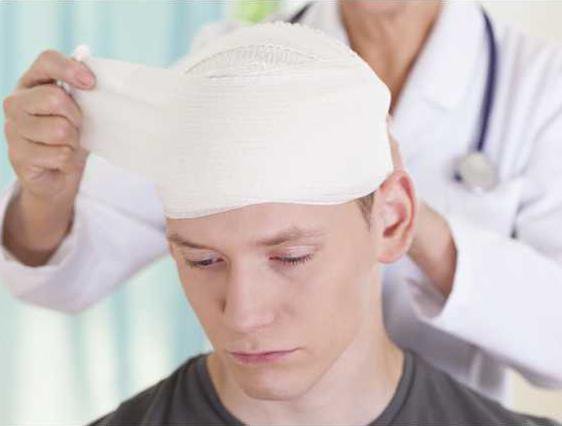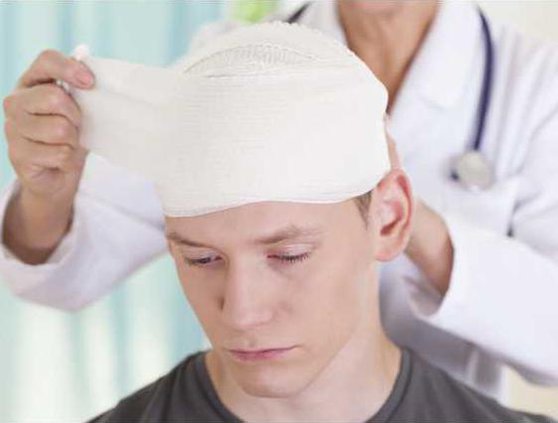Research has long shown that concussions are not healthy in any case, but a recent study finds children and teenagers who sustain a concussion while participating in sports could also be affected in their academic performance.
Student-athletes with concussions "may experience more problems concentrating, keeping up and paying attention in school," Time reported about the study. "The symptoms are worse for students who have recently been injured, but remained significant even for those who had recovered."
The study, published in the journal Pediatrics, focused on 349 students ages 5 to 18 who had sustained a concussion. Some were recovering, some no longer feeling effects and others still experiencing symptoms.
Parents of the students had reported "academic concerns and problems within four weeks of injury," according to the study overview.
Eighty-eight percent of the students still recovering reported more than one symptom, including headaches, fatigue, difficulty understanding lessons or problems concentrating, wrote Time. Seventy-seven percent reported they had trouble taking notes and had to spend more time to finish their homework.
"Instead of trying to get the kids back to school doing things 100 percent as they usually would, we need to allow the symptoms to ebb and flow in a more natural way. Kids should be paying attention to their bodies and teachers need to be attuned to their symptoms," said Danielle Ransom, head researcher of the study, according to Time.
"A concussion is caused by a blow or jolt to the head or body that causes the brain to shake. The shaking can cause the brain not to work normally and can result in serious side effects," says aftertheinjury.org. "Initial treatment for a concussion is rest, both mental and physical, which allows the brain time to heal."
In another recent study, researchers compared memory tests and brain scans of former-NFL players and a control group of people who didn't play college or professional football to better understand how concussions affect memory, reported Reuters.
"Our results do suggest that players with a history of concussion with a loss of consciousness may be at greater risk for cognitive problems later in life," said the study author, Munro Cullum, according to Reuters.
Researchers recruited 28 retired NFL players, and all but three had experienced at least one concussion, though they had sustained more than three, on average.
Those with concussion history as well as mild cognitive impairment got the lowest scores on a memory test, and were found to have "significantly smaller volume in the left hippocampus, a region of the brain involved in memory," Reuters said.
Student-athletes with concussions "may experience more problems concentrating, keeping up and paying attention in school," Time reported about the study. "The symptoms are worse for students who have recently been injured, but remained significant even for those who had recovered."
The study, published in the journal Pediatrics, focused on 349 students ages 5 to 18 who had sustained a concussion. Some were recovering, some no longer feeling effects and others still experiencing symptoms.
Parents of the students had reported "academic concerns and problems within four weeks of injury," according to the study overview.
Eighty-eight percent of the students still recovering reported more than one symptom, including headaches, fatigue, difficulty understanding lessons or problems concentrating, wrote Time. Seventy-seven percent reported they had trouble taking notes and had to spend more time to finish their homework.
"Instead of trying to get the kids back to school doing things 100 percent as they usually would, we need to allow the symptoms to ebb and flow in a more natural way. Kids should be paying attention to their bodies and teachers need to be attuned to their symptoms," said Danielle Ransom, head researcher of the study, according to Time.
"A concussion is caused by a blow or jolt to the head or body that causes the brain to shake. The shaking can cause the brain not to work normally and can result in serious side effects," says aftertheinjury.org. "Initial treatment for a concussion is rest, both mental and physical, which allows the brain time to heal."
In another recent study, researchers compared memory tests and brain scans of former-NFL players and a control group of people who didn't play college or professional football to better understand how concussions affect memory, reported Reuters.
"Our results do suggest that players with a history of concussion with a loss of consciousness may be at greater risk for cognitive problems later in life," said the study author, Munro Cullum, according to Reuters.
Researchers recruited 28 retired NFL players, and all but three had experienced at least one concussion, though they had sustained more than three, on average.
Those with concussion history as well as mild cognitive impairment got the lowest scores on a memory test, and were found to have "significantly smaller volume in the left hippocampus, a region of the brain involved in memory," Reuters said.





